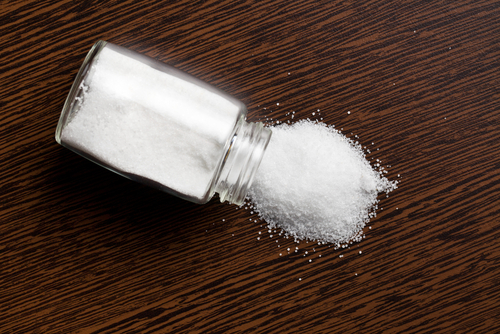Decades of science show NO conclusive evidence that cutting back on dietary sodium reduces cardiovascular morbidity
 No salt, low salt, salt free, heart-healthy salt substitution–any added salt will hurt your constitution. It reads like some bizarre, Seussian tale. Excepting that we’ve heard it not from the good Dr. Geisel but from the medical community and public health advocates everywhere. We watch as celebrity chefs take the salt elimination cooking challenge to prepare an “improved healthy” cuisine. Self-anointed “experts” cadge, coax, and cajole us to decrease our salt, or, more specifically, sodium intake. If that doesn’t work then the specter of heart attacks and strokes is unleashed upon us, along with a dash of fire and brimstone for good measure. It is, after all, clearly in our best personal and the greater public interest.
No salt, low salt, salt free, heart-healthy salt substitution–any added salt will hurt your constitution. It reads like some bizarre, Seussian tale. Excepting that we’ve heard it not from the good Dr. Geisel but from the medical community and public health advocates everywhere. We watch as celebrity chefs take the salt elimination cooking challenge to prepare an “improved healthy” cuisine. Self-anointed “experts” cadge, coax, and cajole us to decrease our salt, or, more specifically, sodium intake. If that doesn’t work then the specter of heart attacks and strokes is unleashed upon us, along with a dash of fire and brimstone for good measure. It is, after all, clearly in our best personal and the greater public interest.The hypothesis is sound and the supporting data is impeccable, right?
The theory goes as follows: Salt acts to make us retain fluid. When we retain more fluid it increases our blood pressure (albeit temporarily). Increased blood pressure is hypertension. Hypertension is a risk factor for cardiovascular disease like heart attacks and stroke. Heart attacks and strokes are bad. Therefore, hypertension is bad. Thus, sodium must be bad; A causes B which causes C, therefore A causes C. Get rid of A and you get rid of C—simple basic arithmetic, no? Reduce sodium intake and you will reduce blood pressure and thus reduce the incidence of stroke and heart attack. Reducing sodium intake is good—simple, effective, and undeniably the prevailing conventional wisdom these days.
Except… one thing is missing.
The conclusive data—or any data-that definitively shows that cutting back on dietary sodium reduces mortality or significantly reduces cardiovascular morbidity. For over half a century, starting in the 1960s, there has been a vehement and salty exchange just out of public earshot involving respected scientists on both sides of this line. But with the advent of an aggressive public policy to reduce dietary sodium intake for presumed public health benefit and studies emerging suggesting negative consequences of a low-sodium diet, the clamor of dissension is heating up.
=====================================================================
JAMA on salt HERE.
Read the complete article here.
Here is an article from The Kennebec Journal on the division regarding the salt controversy. Here are a couple of quotes:
"Four months after an Institute of Medicine report said reducing salt to the lowest recommended level doesn't improve health and may harm it, the U.S. Centers for Disease Control and Prevention said they disagree. In an article published Monday in the American Journal of Hypertension, the CDC and New York City health officials said getting Americans to eat less salt remains a key objective with the potential to save thousands of lives."
and
"Lowering sodium to the extent required to lower blood pressure has a variety of other effects," including some that boost heart attacks, strokes and death, he said. "It's just not that simple. The message from the evidence is we don't know."
Here is another article from Food Politics by Marion Nestle.
Another article on salt here.
More data in the Salt Wars - Aug 14, 2014; http://www.medpagetoday.com/Cardiology/Hypertension/47203
An article by Marion Nestle - http://www.foodpolitics.com/2014/08/its-salt-arguments-again-new-research-arguments-over-public-health-recommendations-and-issues-of-conflicts-of-interest/

Read another article on salt here - http://www.dietdoctor.com/eat-less-salt
ReplyDelete